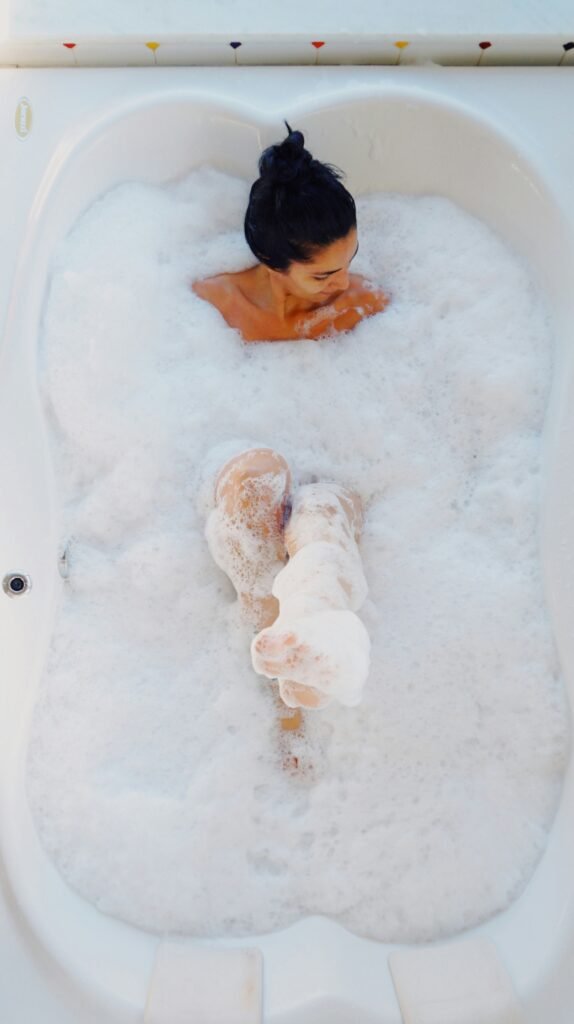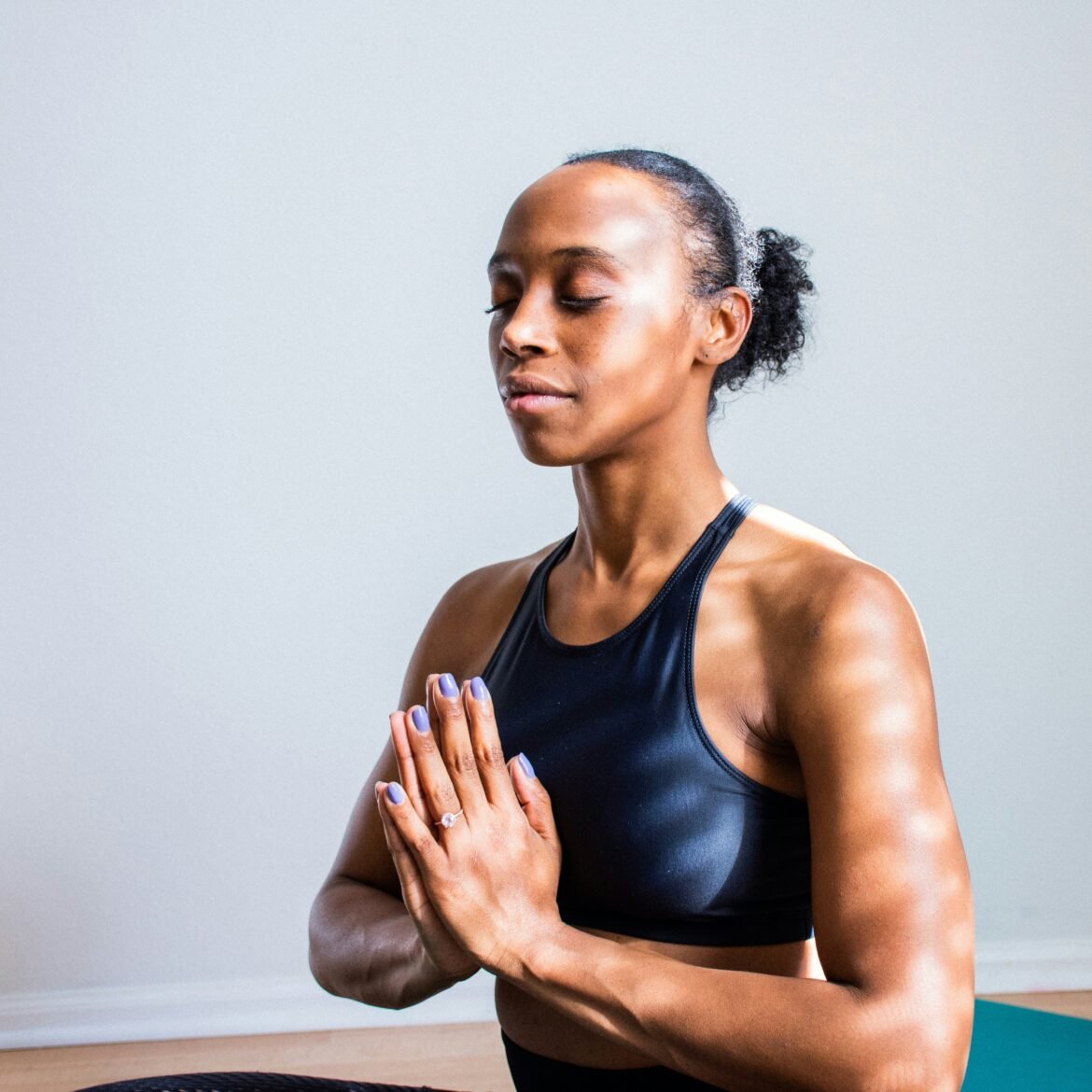Self-Care Habits That Are Gentle, Not Perfect
Why I Stopped Trying to “Win” at Self-Care
Somewhere along the way, self-care became another thing to perform. We turned it into a checklist: bubble bath, face mask, yoga, green smoothie. Don’t get me wrong, I’ve enjoyed all of those things. But for a long time, I treated self-care like a competition with myself. If I wasn’t doing it “right,” I felt like I was failing at the very thing meant to restore me.
I remember one week in particular. I had bought a stack of expensive bath bombs, set candles around my tub, and even downloaded a meditation playlist. It looked like the perfect scene straight out of Instagram. But instead of feeling relaxed, I felt… stressed. Stressed about how long it was taking. Stressed about the fact that I’d have to scrub the tub afterward. Stressed that I wasn’t getting some magical, life-changing result out of all this effort.
That’s when it hit me: I had turned self-care into just another job. And that’s not the point at all.
Real self-care, the kind that actually helps, isn’t about creating picture-perfect moments. It’s about giving yourself what you need in the moment, even if it looks boring or messy. Sometimes that means staying home when you don’t have the energy to socialize. Sometimes it’s ordering takeout because cooking feels overwhelming. And sometimes it’s just letting yourself take a nap without guilt.
That shift—from “perfect” self-care to gentle self-care—changed everything for me.

The Beauty of Gentle Self-Care
Gentle self-care doesn’t have rules. It doesn’t say, you must meditate for 20 minutes every morning or you have to journal daily. Instead, it says: what do you need right now, and how can you give it to yourself in the simplest way possible?
It’s not about perfection; it’s about compassion.
On some days, brushing your teeth and making your bed might be the best you can do. And honestly? That’s enough. On other days, you might have the energy to stretch, journal, or go for a walk. Gentle self-care honors both days equally.
The biggest difference between “perfect” self-care and gentle self-care is sustainability. Elaborate rituals might feel nice once in a while, but they’re hard to maintain. Gentle habits—the ones that take two minutes, don’t cost money, and fit into real life—are the ones that actually stick. And over time, those small acts build up and make a huge difference.
A Season of Burnout (and What It Taught Me)
Last winter, I hit a wall. Work deadlines piled up, family responsibilities were pulling me in every direction, and I felt like I was running on fumes. My solution back then would’ve been to plan a big “self-care day”—maybe a massage or spa appointment. But here’s the thing: one spa day wasn’t enough to undo months of ignoring my needs.
That’s when my partner suggested we try sprinkling little acts of care throughout the day instead of waiting for the “perfect” moment. So we started with three tiny changes:
- A five-minute stretch in the morning before checking our phones.
- Stepping outside once a day, even just to breathe fresh air for a minute.
- No phones at dinner, so meals felt calmer and more present.
To my surprise, those tiny shifts had a bigger impact than any spa day ever had. I slept better. I felt less wired all the time. Even my mood throughout the day was lighter.
Friends started noticing, too. “You seem calmer lately,” one said. When I explained what I was doing, they were shocked at how simple it was. And before long, a few of them tried it themselves. Now, when we talk, we often swap our little “gentle self-care wins” from the week. It’s like we’ve built a new culture around taking care of ourselves in small, sustainable ways.
Why Gentle Works Better Than Perfect
Here’s why these gentle habits actually stick:
- They’re flexible. You can adapt them to your mood, your energy, your schedule. No pressure.
- They reduce guilt. If you miss a day, it’s fine—you just pick up where you left off.
- They add up. One deep breath doesn’t change your life. But taking mindful pauses every day for weeks? That adds up to less stress and more resilience.
- They’re rooted in kindness. Gentle self-care comes from a place of self-compassion, not self-criticism.
Research backs this up, too. Studies on mindfulness and self-compassion show that small, consistent acts of kindness toward yourself are far more effective for reducing stress than occasional, elaborate gestures. Think of it like brushing your teeth: once in a while won’t help much, but small, daily care keeps things healthy in the long run.
What You Actually Need (Spoiler: Not Much)
To practice gentle self-care, you don’t need a fancy setup. Here’s all you really need:
- A few minutes a day. Even 2–5 minutes is enough.
- Willingness to listen to yourself. Your needs change daily, and that’s okay.
- Compassion. Be kind when you miss a day—it happens.
- Optional extras. A notebook, comfy clothes, a cozy corner, maybe some tea.
That’s it.
How to Start Practicing Gentle Self-Care
Instead of setting a rigid goal, start with an intention. For example: I want to feel calmer in the mornings or I want to give myself more breaks during the day.
Then pick one small habit that fits that intention. Here are a few ideas:
- Take three deep breaths before you open your laptop.
- Drink a full glass of water first thing in the morning.
- Stretch your shoulders for one minute in between tasks.
- Write down one thing you’re grateful for at night.
Do it daily, but don’t stress if you miss a day. Just keep coming back to it. Once it feels natural, add another habit if you want.
The key: don’t overwhelm yourself. Two or three consistent habits are far more powerful than a dozen half-hearted ones.
Making Self-Care Stick
Here are a few tips I’ve found helpful:
- Start small. Three breaths, one stretch, one glass of water. That’s enough.
- Stack it onto something you already do. Breathe while the coffee brews. Journal while the kettle boils. This makes it easier to remember.
- Celebrate tiny wins. If you took a one-minute pause today, that counts. Really.
- Stay flexible. Some days you’ll do more, some days less. Both are valid.
Variations for Different Needs
Self-care doesn’t look the same for everyone.
- If you’re an introvert, your self-care might be reading in silence or journaling.
- If you’re an extrovert, it might be calling a friend for a quick chat.
- If you’re exhausted, self-care might mean going to bed earlier.
- If you’re restless, it might be trying something new, like a walk in a different neighborhood.
The point is: listen to yourself.
Micro Self-Care for Busy Days
Some days are just chaotic, and that’s okay. Here are “micro” practices you can try when you feel like you have no time:
- Step outside and notice the sky for 30 seconds.
- Close your eyes and unclench your jaw.
- Put your phone down while you eat a snack.
- Play one song that makes you smile.
Tiny things, but they count.
Final Thoughts: Embracing Imperfection
Here’s the truth I wish someone had told me sooner: you don’t need to earn rest, and you don’t need to perform self-care perfectly. The best self-care routine is the one that feels gentle, forgiving, and sustainable.
Some days, your self-care might look like meditation and journaling. Other days, it might look like lying on the couch and watching your favorite show. Both are valid. Both matter.
So the next time you catch yourself thinking, I should be doing more, try asking instead: What do I actually need right now? Then give yourself permission to do that—without guilt.
Because self-care isn’t about perfection. It’s about coming home to yourself, one small, gentle habit at a time.

Frequently Asked Questions For Gentle Self-Care Habits
1. How long does it take to see benefits from gentle self-care practices?
Many people notice small improvements in mood and energy after just a few days of consistent practice. More significant changes in stress levels and resilience typically develop over 3-4 weeks of regular practice.
2. Can gentle self-care really make a difference if I only have 5 minutes a day?
Absolutely! Research shows that even brief moments of mindfulness and self-compassion can significantly reduce stress hormones and improve well-being when practiced consistently.
3. What if I forget to practice my self-care habits?
This is where the “gentle” approach becomes crucial. Simply acknowledge the lapse without judgment and resume your practice when you can. Consistency matters more than perfection.
4. Is gentle self-care effective for managing serious conditions like anxiety and depression?
While gentle self-care practices can be beneficial supplementary tools, they shouldn’t replace professional treatment for clinical conditions. Consider them valuable additions to therapy and/or medication when needed.
5. How do I know which self-care practices are right for me?
Pay attention to how you feel after trying different practices. The right ones will leave you feeling more grounded, energized, or peaceful—not depleted or like you’ve checked off another task.
6. Can self-care become selfish?
Authentic self-care enables you to show up more fully for others and your responsibilities. It becomes problematic only when used to consistently avoid responsibilities or harm relationships.
7. What if I don’t have privacy or personal space for self-care?
Many gentle practices can be done internally—like mindful breathing, compassionate self-talk, or brief body scans—without requiring physical space or privacy.
8. How can I practice self-care when I’m extremely busy?
Focus on “habit stacking” by attaching brief self-care moments to activities you already do daily, such as brushing teeth, commuting, or waiting in lines.
9. Is scrolling social media a form of self-care?
While it can provide momentary distraction, research shows that passive social media consumption often increases stress and comparison. Consider more active forms of engagement or rest.
10. How do I explain to others that I need time for self-care?
Frame it in terms of effectiveness: “I’ve noticed I’m more present and energetic when I take a few moments for myself. This helps me be more available to you and others.”
11. Can children benefit from learning gentle self-care habits?
Absolutely! Teaching children age-appropriate self-care habits helps them develop emotional regulation skills and healthy boundaries that benefit them throughout life.
12. What’s the difference between self-care and self-indulgence?
Self-care rejuvenates and supports your overall wellbeing, while self-indulgence might feel good momentarily but often leads to negative consequences later. Authentic self-care leaves you feeling better in the long run.

